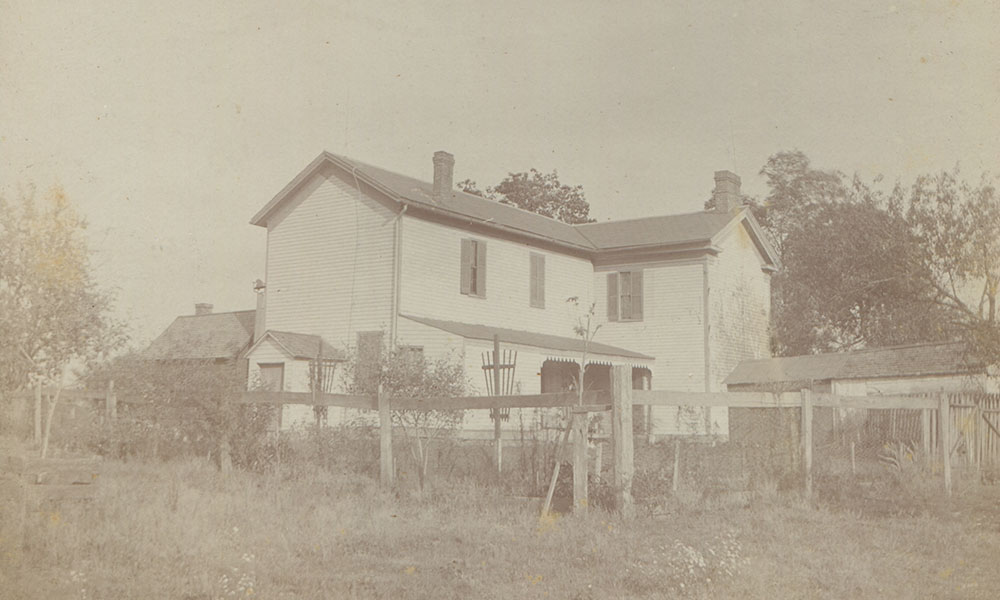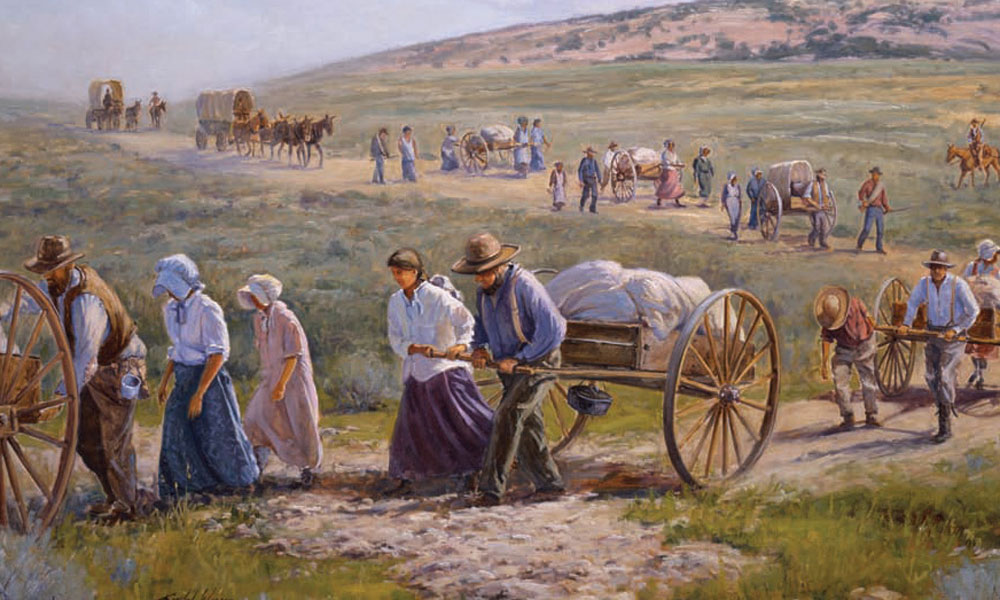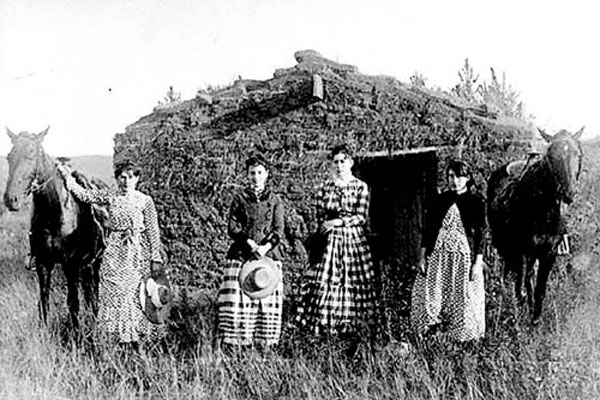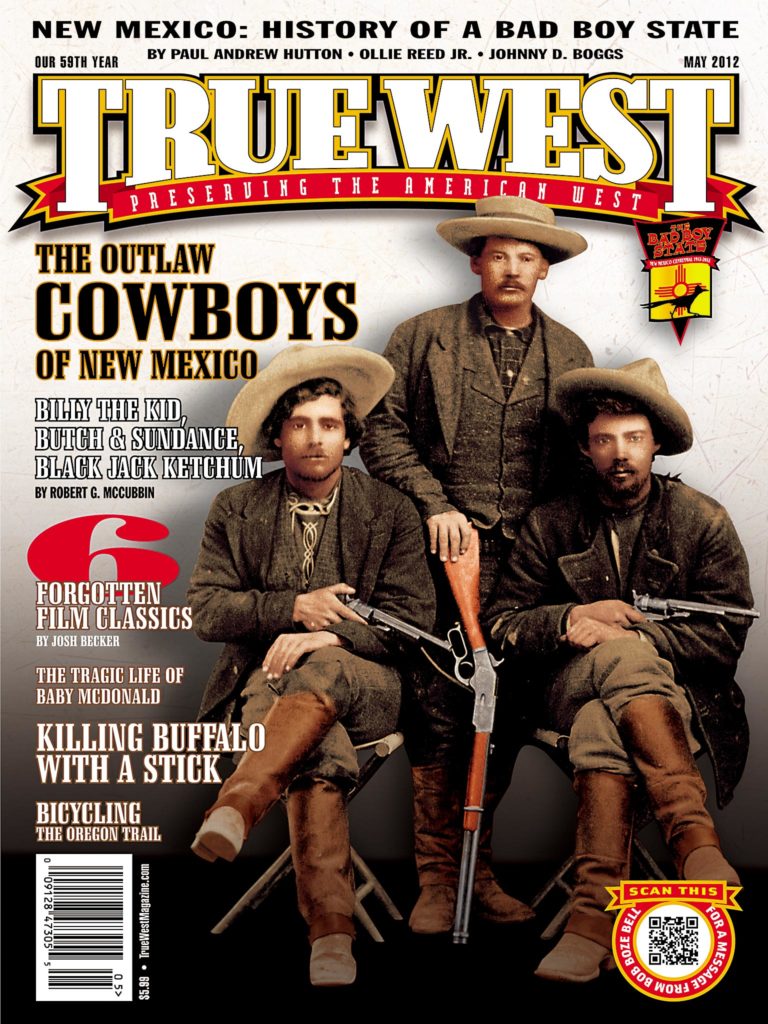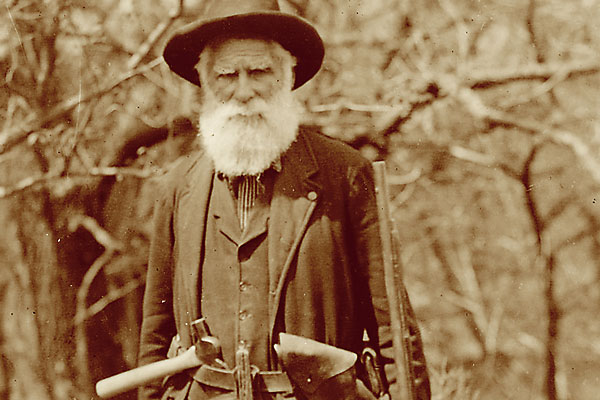 It’s hard to believe, but if it were not for Honest Abe, America would never have had:
It’s hard to believe, but if it were not for Honest Abe, America would never have had:
1. Daniel Freeman
2. Little House on the Prairie
3. Marty Robbins’s song “A Hundred and Sixty Acres”
4. The Oklahoma Land Rush
5. Shane, and about a zillion other novels and movies about homesteaders feuding with ranchers
That’s right. Because 150 years ago, on May 20, 1862, President Abraham Lincoln—undoubtedly a bit preoccupied with a little thing called the Civil War threatening the survival of these United States—signed into law the Homestead Act. It granted 160 acres to applicants, provided they lived on the land for five years and made improvements. Total cost: $18 … and a lot of backbreaking work.
One of the first citizens to take advantage of the act was Daniel Freeman. Ten minutes after midnight on January 1, 1863, the first day the law went into effect, Freeman reportedly filed his claim at the land office in Brownville, Nebraska. Today, his claim is the focus of the Homestead National Monument of America in Beatrice.
“[T]ell the Boys if they come to Nebraska to call and see me,” Freeman wrote to Agnes Suiter, whom he later married, in 1865, “I liv four miles from Beatrice the county seat of Gage Co Nebraska or at least I hav a farm thare and intend to make it my home when I git thru rambeling as it is I am at my farm the moste of the time.”
He wasn’t impressive at spelling or grammar, but he sure made history.
While most of the country will observe the sesquicentennial of the Civil War’s second year, Homestead National Monument will celebrate 150 years of farming. It doesn’t have the fame of Shiloh, Antietam or Fredericksburg—or the body count—but you can’t overlook the significance of this monument that pays tribute to the Homestead Act. More than two million people filed claims, developing some 270 million acres into farms and ranches.
Among the settlers building their homes was the Ingalls family. “For days Pa hauled logs,” Laura Ingalls Wilder wrote in Little House on the Prairie. “He made two piles of them, one for the house and one for the stable. There began to be a road where he drove back and forth to the creek bottoms.”
Pa told Ma: “No matter how thick and close the neighbors get, this country’ll never feel crowded. Look at that sky!”
Pa was talking about Kansas. About 13 miles southwest of Independence, a replica log cabin has been constructed, and this Little House on the Prairie commemorates where the Ingalls family settled in 1869. You definitely don’t feel crowded out here, even today. Of course, Pa wasn’t actually homesteading. He was more like, well, squatting. Osage Indians still owned the land—white settlement wasn’t permitted until 1871—and the Ingalls were forced to move away in 1870. But that was okay, because it meant Laura got to write On the Banks of Plum Creek (Wisconsin and Minnesota) and By the Shores of Silver Lake (South Dakota), and several other classics.
The Homestead Act wasn’t repealed until 1976—that’s why Elvis Presley could be homesteading in Florida in 1962’s Follow That Dream—although pioneers could homestead in Alaska until 1986.
The party will go on all year at the Homestead National Monument. On May 20, “Beginning of the Dream, Homestead Act Made Law” commemorates Honest Abe’s deal and the settlers who made it happen. Six days later, John McCutcheon will headline a “Monumental Fiddling Championship!”
All this makes me want to sing: “I’ve got a hundred and sixty acres in the valley. Got a hundred and sixty acres of the best. Got an old stove there that’ll cook three square. And a bunk where I can lay me down to rest.”
Johnny D. Boggs grew up on a farm, but it was only 32 acres, although weeding the garden in August sure felt like 160 acres.


